Updated at 20.00
MICHAEL CALVIN’S latest book was written before the European Super League announcement, but it could just as easily have been produced after the news broke.
‘Whose Game is it Anyway’ documents its author’s growing disillusionment with the beautiful game and his attempts to rediscover the childlike joy that it had once elicited.
Described as “part memoir, part manifesto,” the book recounts the 40-plus years that Calvin has spent in sport and what he has taken from the experience.
He also contemplates the disconcerting direction in which football is headed and what can be done to combat its multiple problems.
The42 recently caught up with Calvin to discuss his latest work…
Tell us about your motivation for writing the book.
It was written at the height of the pandemic and that’s been a time for all of us of self-reflection.
I think people, and I’m no different, have been looking for a bit of meaning. People have re-evaluated what’s important in their lives and this coincided with the death of my father-in-law through Covid. As strange as it may sound, football played a part in his passing in terms of it was almost a milestone or signpost.
He was in a care home in Devon and had accelerated vascular dementia, so the curtains were closing on his mind and he eventually succumbed to Covid.
About four or five days before he passed, my wife, apropos of nothing, asked him about his childhood memories of football. He was a mad Watford fan throughout a long life and had played semi-professionally after the war. He served in the royal marine commandos. And it was remarkable really because there was a sudden clarity about him and he was 10 or 11 years old again. He spoke about walking through the terrace streets to the ground and Saturday was a time of pretty simple pleasures — sweets in the sweet shop and that anticipation that the sounds and smell of the football ground and the sight 0f thousands of people gathered almost in common communion.
So when he passed, there was a mystery really that he left behind in a corner of a garden shed. We found a wooden box. My father-in-law was called Olly Goss, it was full of his father’s woodworking tools. On the inside of the box, there were three water-stained fixture lists from the 1932-33 season for Watford FC — the first team, the reserve team and a London midweek team.
Above the midweek team, there was a tiny thumbnail head-and-shoulders photograph of a young footballer. That intrigued me and I wondered who it was. That involved going back, looking at Watford as a club all through 1932-33 trying to find out who that person was. While we were also sorting through my father-in-law’s belongings, we found an old team photograph from the 1945-46 season, when he was playing for the marines because they kept the commandos a year before they demobilised.
I looked at it and it had a real resemblance to that young footballer. The problem was, in 32-33, he was 10 or 11 years old, just about to go to his senior school, so it couldn’t have been him, but I wondered whether he might have had a trial for the club just before the war when he was 18 or 19.
I’ll never know. I contacted the club, they didn’t have a record of any trialists at that time, which is understandable. I’m left with this mystery — even if it isn’t him, there was a link between Olly and his father, which testified to the formative innocence of all of our association with football — your dad or mum most regularly.
And at that time, I had fallen out of love with the game because of all the things that manifested themselves over the last week or two with the Super League. The greed, the innate cynicism and the awful elitism of modern football. It’s taking it away from an awful lot of people like me, [who see it as] an expression of family and identity.
I thought if I look back over my own life in sport, blimey I’ve been blessed — a council house kid who has worked in more than 80 countries. If I look back at all that and saw what sport and in particular football gave me as an individual, and how it enriched me both personally and professionally, that might be the catalyst to remind me why I fell in love with the game in the first place and then almost make my peace with it. So that was the basic premise of the book. It’s part memoir and part manifesto about football and what I believe it can and should be.
In the latter half of the book, I essentially wanted to go out and meet good people, because there are a lot of good people out there doing terrific things in what is a really bad game. Football is a people business, but it doesn’t look after people very well.
Like Gareth Southgate, the England manager says, it’s a great game but a shitty industry. So I’m looking at clubs that I feel embody the true spirit of the game. Individuals who are sometimes in pretty strange and difficult circumstances doing good things. Then it brings me round to the whole idea of what a football club means to someone.
The key element in the book, and it gave me an idea of a film I did for BT Sport called ‘Ours,’ is around fan-run and heavily fan influenced clubs. I always wanted to ask what happens when you lose your football club through no fault of your own.
I’d seen on social media a guy called James Bentley. His handle is ‘James is a Bury fan’. I met him one day before I went to see the new phoenix club after the old club had been kicked out of the football league. It was a pivotal moment in terms of what I was trying to do. I had never heard a fan talk so emotionally and eloquently about what his football club meant to him. That football club was basically taken away by malign owners who didn’t care for him and thousands like him.
We did the interview on Platform 2 of Bolton Street Station in Bury, which is where steam trains come in. That was where the Bury team left to play in the 1903 FA Cup final and returned as conquering heroes having won 6-0. Even 118 years later, they are still a huge source of civic pride. So that’s one idea of football, of a common cause and representing your community. It was also where James’ great grandfather, Thomas Watts, went to war in 1914. He came back in 1919, having been held prisoner of war in Germany. Indirectly, Thomas Watts passed down his love of football to his great-grandson, Joe.
So that is the other end of football, it is a familial experience. It’s a very intimate thing, where fathers take their sons or mothers take their daughters to games.
So that was a really powerful moment for me because he was bereft. When his football club is taken away from him, for a year he didn’t want to read about football, listen to it or see it on television. He didn’t want to have a bet on it, the usual Saturday afternoon accumulator. It meant nothing and almost taunted him because it was an expression of something that had actually been denied to him.
So that really made me concentrate on what is possible coming out of the pandemic. He basically chose hope in the end by supporting the phoenix club, Bury AFC, which had actually come out of the original club’s demise.
It was quite a painful process. What surprised me was there was quite a vicious disagreement with supporters of the old club. Some people felt anyone who supported the new club was a traitor and had sold out.
But I visited that club and saw something really vibrant and distinctive. It was a club, which thrived on old traditions. The first game I went to, there were [fans] trying to get over the wall and bunk in for nothing. Little girls with massive hot dogs at half-time.
What struck me also was: ‘What is a football club?’ It’s actually a common experience for friends. There were people at this game who hadn’t seen each other for six months because of the lockdown, they’re having a pint around the pitch. So that’s where it mattered and where James rediscovered himself.
He’s had advice from other supporters’ groups, which is the commonality of purpose and commitment. The guys from AFC Wimbledon, they’d talked to them. They’d gone down to see Lewes, which is a conscience-driven club, 100% fan-owned, not for profit. It espouses equality because it pays its men and women players exactly the same.
So there’s a really modern entity coming out and what struck me also is that it’s largely volunteer-based. It was a different generation. The millennials were using their expertise in things like social media to promote the club and they sold a load of shirts. They had competitions for the design and they were very proactive on social media.
So I suppose that was a community in action, that football club. It had a big impact because it is a reminder that football isn’t about money, it’s about people. So that was a pretty pivotal moment.
Did you come away from the book optimistic about the future of football?
Yes, and I think it was obvious there was a good chance of something like the Super League emerging from the undergrowth, simply because of the trends and the financial pressures and the nature of the people who are now running the bigger clubs.
But when that did come, I think it’s also heightened people’s disillusion with it. We’re speaking the morning after a Champions League semi-final, Real Madrid-Chelsea. That game last night wouldn’t have been possible in the Super League, because it would lack jeopardy and intensity. Essentially, it wouldn’t matter, because the whole purpose of playing would be just to make money. It would be a sterile, self-fulfilling prophecy. I think people want more than that.
The disrespect and contempt the Super League clubs had for supporters was disgusting. Calling them ‘legacy fans’ as if they were second class, that they were looking for younger people with more money and less time or less tradition was appalling.
The pandemic was a time of self-reflection. People are looking at what it entails now supporting a Premier League club. A friend of mine, who is a West Ham fan, spoke to me a couple of weeks ago. He said: ‘If I want to watch my team at the Olympic Stadium, train fares, few beers, maybe a meal, if I take my son, it’s around £250. That’s in a stadium I hate, because it’s soulless, like many stadiums, the London Stadium has the air of a superstore.’
We’ll relieve you of as much money as possible. It’s a soulless exercise. He said ‘I’m going to my local non-league club. I pay £7 or £8 to get in, have some beer with my friends, change ends at half-time, it’s a much more fulfilling experience.
I’ll still be a West Ham fan, but I can watch it on TV. A lot of people are thinking like that. There’s an interesting thing about a smaller club.
One of the things that I’ve always been impressed by in Gaelic sport is the way that those clubs and those sports are absolutely central to a community’s identity, be that a village, town or even provincial level. What I love about that is there’s an intimacy between the club and the supporter.
When you’re at a smaller venue, you are closer to the players, they are identifiable human beings, whereas if you’re in a bowl somewhere, you don’t get that, you’re divorced from the action. You’re almost following it by instinct and memory because we were all brought into the game at that more local level, or many of us were.
From a personal point of view, my experience was being a ball boy. That was such an intimate process at Watford and we changed next to the home dressing room in a laundry room, which had that smell of football — mud, stale sweat, a bit of soap, liniment.
We could hear the players in the dressing room next door getting ready. We could hear the murmur in the crowd gathering, and when you were out during the game, you were on the touchline, so you’re really close to the players and you hear their yelps of pain. You can see the fear in their eyes when they’re injured. When they’re playing badly, you can feel their anger and worry.
So when you have the intimacy and you can feel that as a smaller club, and you can be really close to the players, I think that is a much more persuasive argument for the future of the game, retaining that. Because at the moment, it’s not a relationship between fan and club at the highest level. It’s pretty much a transaction, a financial exercise.
It might be that we end up having two games. That elitist, Super League-type game, because don’t kid yourself, they’re going to come back again soon. It was so badly organised, it was such a shambles in PR and marketing terms, and they just didn’t read the room at all.
So there’s enough money to be made for them to regroup and they’ll come back in probably two years. I’ve become more militant about my sport as years have gone on. If that’s what you want, you so-called self-appointed big six, see you later. Don’t try to have the best of both worlds, having a Super League in midweek, and having a virtual shadow squad playing in the Premier League. Well frankly, if it’s an afterthought for you, you’re an afterthought for me. I don’t care about your game. I care about a game that is closer to the one with which I fell in love.
So do you think it’s basically inevitable that the European Super League will eventually come to fruition in some format?
Yeah. The problem is, the genie is out of the bottle. The ethos of the Premier League was actually a self-fulfilling prophecy that a Super League would eventually happen anyway. It has that same sense of fundamental elitism and arrogance.
The Premier League built their brand on the type of attitudes that have been manifested in current days, i.e. They were quite happy to allow Manchester United, arguably the most celebrated club, to be acquired through a leveraged buyout. That let the Glazers in and stimulated other vulture capitalists from the States and speculators.
Manchester City is run by a nation-state. So we’ve got nation-states, speculators, and Russian oligarchs, with Roman Abramovich at Chelsea, so it’s no surprise that all these guys were fundamentally involved in the Super League.
I obviously bring in the Fenway Sports Group and John Henry at Liverpool. They’re not there as benefactors. It’s an emotionally driven club, Liverpool. They are quite happy to use that emotion and distort the heritage of that club for their own ends.
They made a succession of tone-deaf decisions and the Henry apology was typical of the stage-managed ghost-written apparent contrition that all the clubs came out with when they realised they had made a fundamental tactical mistake. The so-called apology was risible. That’s where there is a danger. Because there are already the siren voices who can say the briefing is that we can’t really punish these plotters, because if we do that, it would actually mean that we’re penalising their fans.
Frankly, that doesn’t wash, because of the sanctions that have been taken against other clubs like Wigan Athletic, who were relegated with a 12-point deduction. No one cared about Wigan’s fans, did they?
So there’s a lot of backsliding going on, a smug retrospective — we need to maintain the status quo.
They’ve come up with a covert plan to essentially subvert football from the inside. So I’ve got no sympathy for them at all. I do feel it would be a retrograde move if there wasn’t some sort of severe sanction imposed against them.
Football isn’t Walt Disney. We’re not going to go hand and hand towards the sunset. They’re going to come back. Of course, they are.
One topic that you allude to in the book and that has been applied in relation to the Super League recently is the idea of journalists boycotting events for moral reasons. Where do you stand on that issue?
I saw a piece by Miguel Delaney saying we should go and cover it, and I tend to agree. When you’re a sportswriter, you’re used to the jibe, ‘oh, you work in the toy department’. But because of the ubiquity of sport and football, in particular, it gives you access to countries and systems and cultures at a time in which more traditional forms of news journalism are restricted.
I’ve been really lucky, my first Olympic Games was in 1980 as a 22-year-old kid. That was Leonid Brezhnev’s Soviet Union. It was the most politically charged Games probably since Hitler’s Olympics in 1936. It enabled me then to form an impression of the realities of the Eastern Bloc culture.
A couple of years later, Poland was under martial law and western journalists were banned. But we were allowed in as accredited football journalists. England drew Poland in the European U21 Championships, and had they not allowed a group of journalists in, they would have been kicked out of the competition.
So this was a unique chance to see what entirely was going on and the international brotherhood of hackdom kicked in. Because when we arrived, the local guys had sorted out interviews with solidarity activists. There was this elaborate ruse that we were going to the cathedral in Warsaw as penitence to make a confession.
We went into the confessional. And on the other side of the grille where the priest usually sat was the solidarity activist. There were three of them and essentially, we were given first-hand accounts of what was going on and once we were out of the country, we could just report on it.
It was the most bizarre interview I’ve ever done, but that was an example of how you can get insight into these conditions.
I got into Albania when it was a closed nation because Terry Venables went along with the ruse that I was going there as Barcelona’s interpreter for a Uefa Cup tie.
So it gives you an awful lot of insight and sometimes, you do take sides. I was perturbed by the poverty and waste of life in Dakar [for the rally event].
I covered a rebel England cricket tour of South Africa, which was a political and sporting embarrassment in the dying days of apartheid just before the release of Nelson Mandela. I unashamedly took sides on that one.
I’d been briefed before we left London. There was an anti-apartheid campaign.
Because the ANC [African National Congress] was still a banned organisation officially at the time, they used to brief us in the back of a black BMW with blacked-out windows. They would say demonstration at the intersection of X and Y at 2.30 or whatever, and ‘don’t worry,’ the comrades know who you are.
Those guys were on the right side of history and the people I liaised with on the ground, as this tour collapsed because it was awful, in terms of the morality and timing of it politically was hapless. It was at the time when [South Africa's then-president] F W de Klerk was waiting to free Mandela.
Those guys were on the right side of history and over the next 5-10 years were key presidential advisors. They got me to see Mandela when I went for the Rugby World Cup in ’95.
You then see the development of the country. I went back in 2010 for the football World Cup and some of those guys I met on the street in 1990 as ANC activists were running that World Cup. And within that, you saw the power of football within the townships, more so than rugby.
It was a great social breakthrough when South Africa won the World Cup in ’95 — I remember being there for the final and it was such a symbolic occasion. Mandela in a Springboks shirt in Ellis Park.
So I suppose sport enabled me to give an insight into social and political change. We’re not just about bats and balls, we’re about a bit more than that, I would hope.
Returning to the chapter on Bury AFC, is the concept of fans getting together, protesting injustices and taking action key to football’s future? Is that one of the main messages that can be taken from this book?
I suppose unity is strength. What struck me about those fans at Bury AFC and also, the fans who came onto the streets to protest against the Super League is that they saw football for what it is.
Football doesn’t belong to plutocrats, potentates, politicians or speculators, it’s about something deeper than that. It’s about more than profit or loss, it’s about flesh and blood.
There was a huge sense of collective determination and pride in watching Bury AFC come together. And also, the exemplar of that model was AFC Wimbledon.
We went to AFC Wimbledon when it was a bit of a building site with the new stadium. That’s a club that has returned home and it is remarkable. In 10-12 years, they have single-handedly done everything that people told them was impossible to do. They’ve taken a club from the 10th tier into the Football League. I think there were six promotions along the way, they’ve got their own stadium, which they pay for themselves.
Fans can run football clubs and perhaps fans should run football clubs. A football club belongs to everyone. It belongs to the kids who have that sense of wonder, it belongs to their parents who go with them, their grandparents who have a lifetime of memories. It’s not about these infiltrators who come in.
We don’t need the millions and the ludicrous consumerism that a Super League represents. It can be an organic process. It can be something that’s much more valuable than the sum of its parts. It’s about having a common cause, friendship, family and something bigger than a game with a leather ball.
This interview has been edited and condensed for publication.
‘Whose Game is it Anyway?’ is published by Pitch Publishing. More info here.
Originally published at 07.30






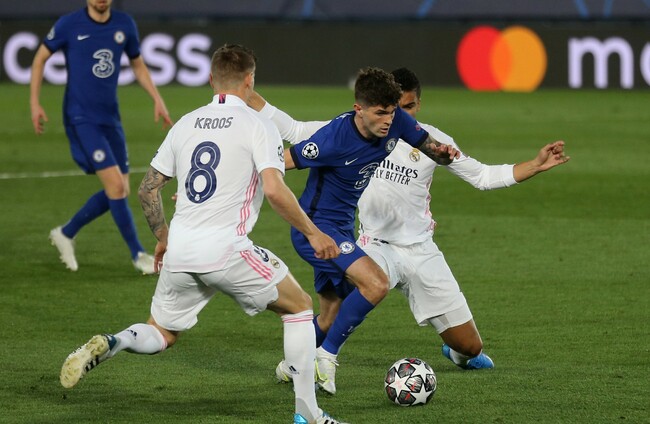
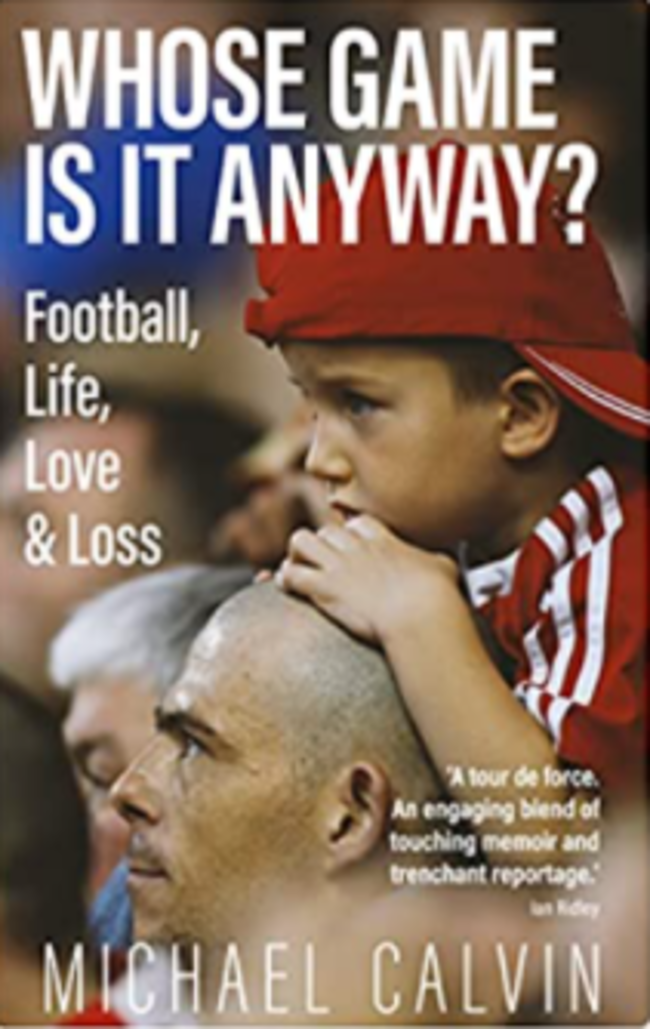
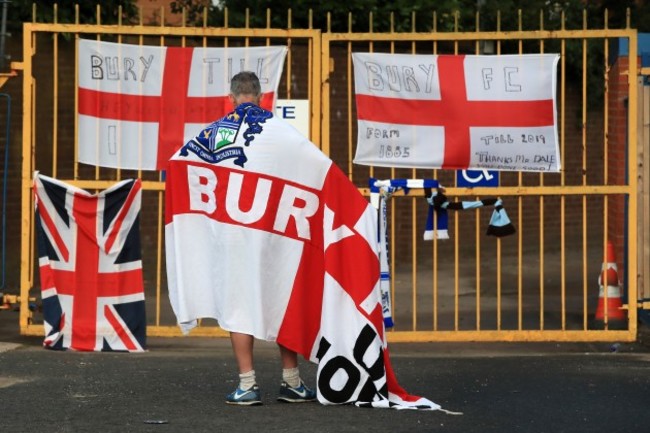
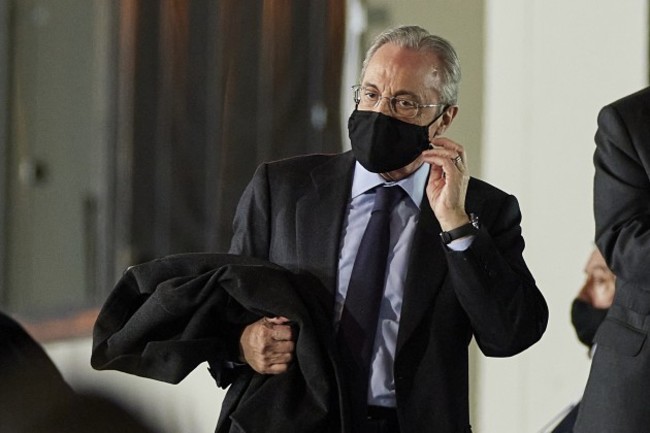
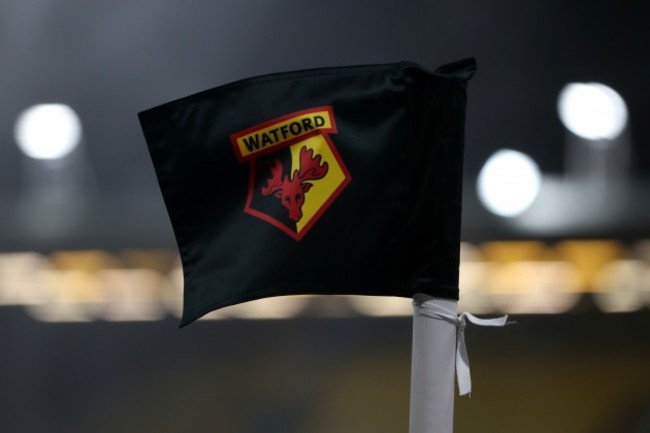
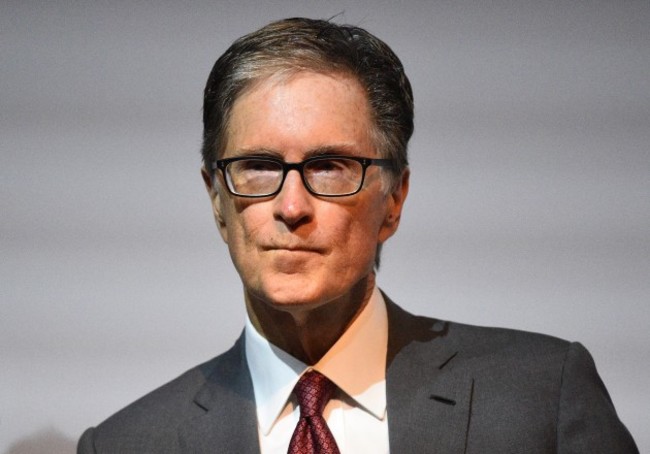
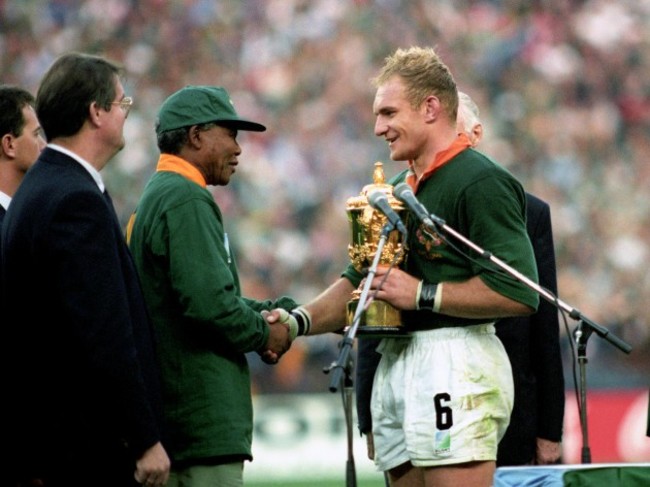
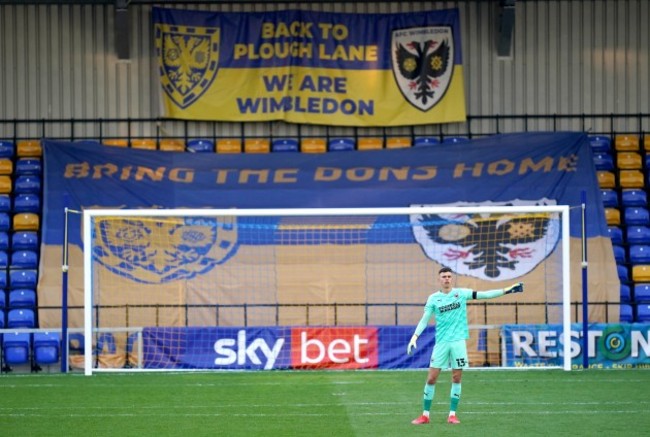

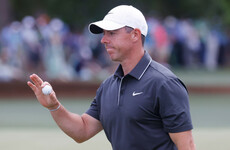


Jaysus he is some full blown self loving arsehole altogether.
Unbelievable isn’t it. He’ll be very vocal during this tour, now that he’s on his ‘road to redemption’
If he could turn around quickly enough he’d f##k himself.
wats the story with Bradley Wiggins?? something is amiss after his bizarre interview a few weeks ago
There are a few doubts about him, he’s also a bit of a fanny
Complete fanny i’d say!
Huge suspicion surrounds Team Sky, they had and still have several shady characters on their staff
Well someone has to win dont they?? If nobody took drugs someone would win the race and they would be clean. Is he trying to say you couldnt even finish the race without taking drugs? Maybe in his head!!!
I have always said, even before lance came out as using, that those cyclists in the tour de France were chemists on bikes
The man’s arrogance knows no limits. Just because he couldn’t do it, he assumes nobody else could. Why can’t he just go and hide like the embarrassment he is?
Stephen roache!! Some how can’t see him taking drug’s!
Would be better then if steroids were mandatory for all cyclists?
Lance is a naughty boy and needs a clip on the ear.
And I thought he has Greg Lemond’s number. He must have forgotten bout him
http://watercooler.skins.net/blog/2013/06/28/why-did-le-monde-have-to-distort-the-facts-in-the-headline/